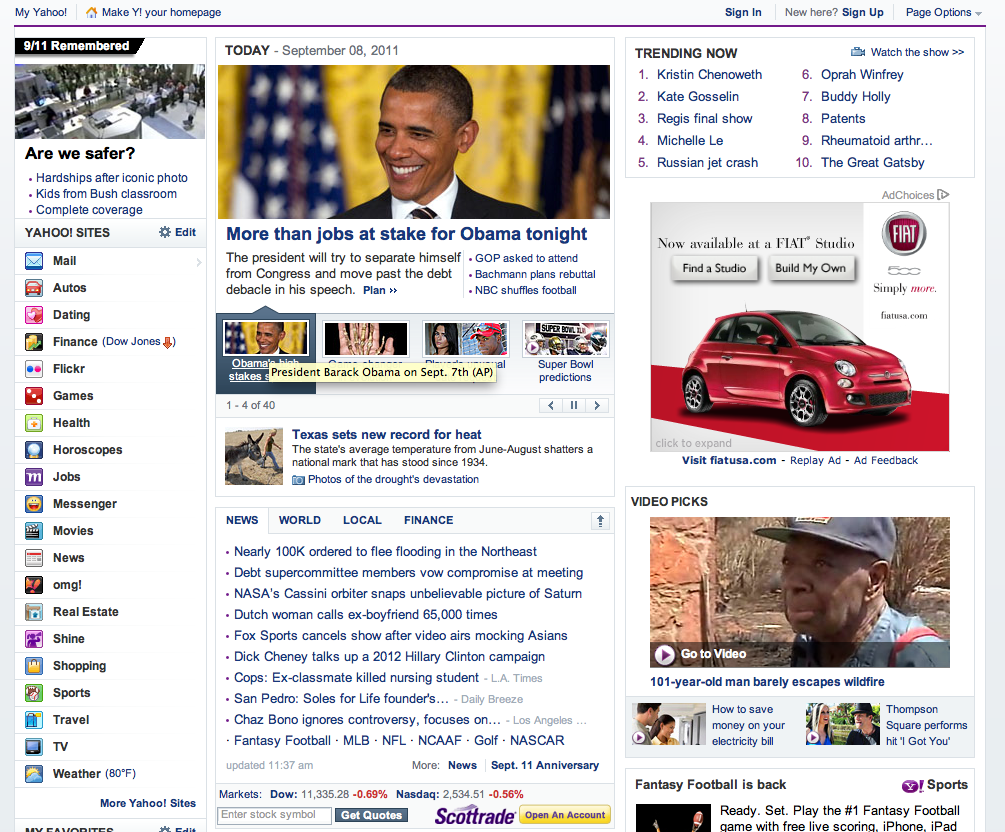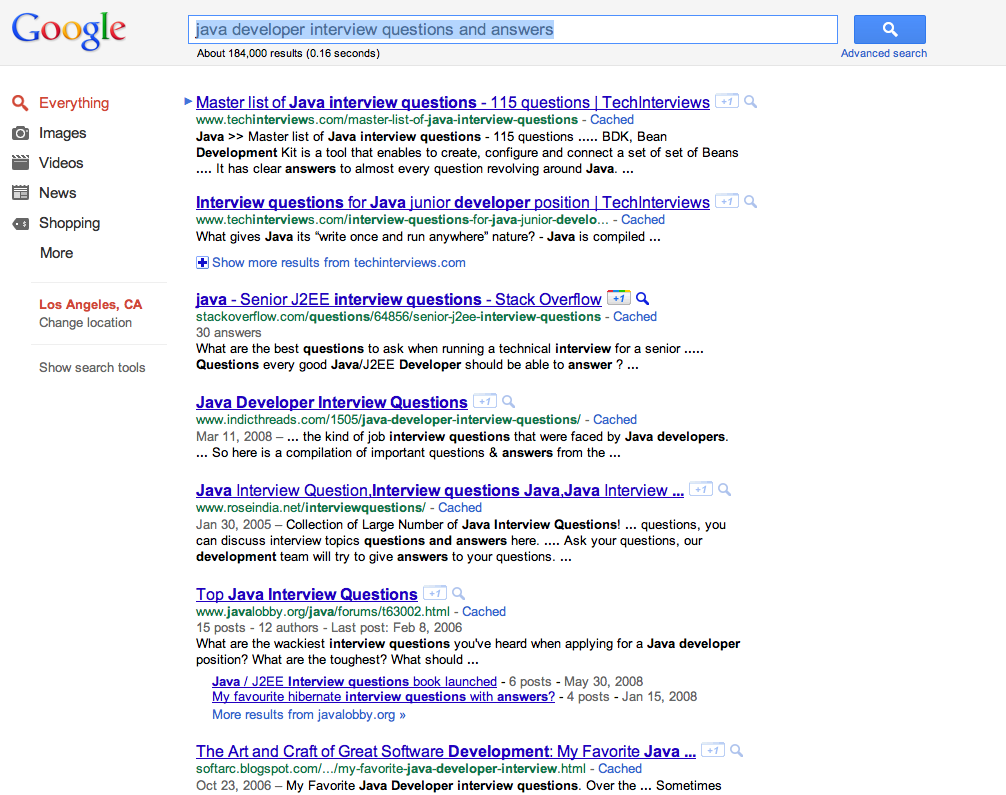According to The Wall Street Journal, Yahoo!’s problems stem from the declining value of content:
“People tell me that content is king, but that is not true at all,” says Rishad Tobaccowala, chief strategy and innovation officer at Vivaki, the digital-media unit of Publicis Groupe SA. “Most people make money pointing to content, not creating, curating or collecting content.”
Which begs the question: If content has no value, then why are we creating it? Why are so many online marketers rushing to create blogs, forums, videos, tweets, etc. — in other words, content?
Because while some content has lost value, but other content has become more valuable.
1. Generic mass-market content has lost value. Look at what you see on Yahoo!

Yes, we’ve all seen this somewhere else already. (Well, maybe not the one about the woman who called her ex-boyfriend 65,000 times…) That’s why it has less value.
2. Niche content has become more valuable. Because people looking for your niche content could actually find it now.
3. Actionable content has become more valuable. The web has shortened the distance from content to action. In the old days, you saw an ad, called an 800 number, and waited for something in the mail. By the time you got it, you might have forgotten what it was all about. Nowadays, if you see something on the web you like, you can take action immediately: download it, buy it, get a quote. The conversion funnel is shorter and faster. Fewer people are dropping out along the way. Therefore, the content must be more valuable now.
As an example, maybe writing about the President’s job speech tonight won’t get you much, but tips on how to get a job must be worth a lot these days, or why would I find all these results on Google for “java developer interview questions and answers”?

What you’re seeing is an example of market economics at work: Niche, actionable content has increased in value at the expense of generic, mass-market content.
